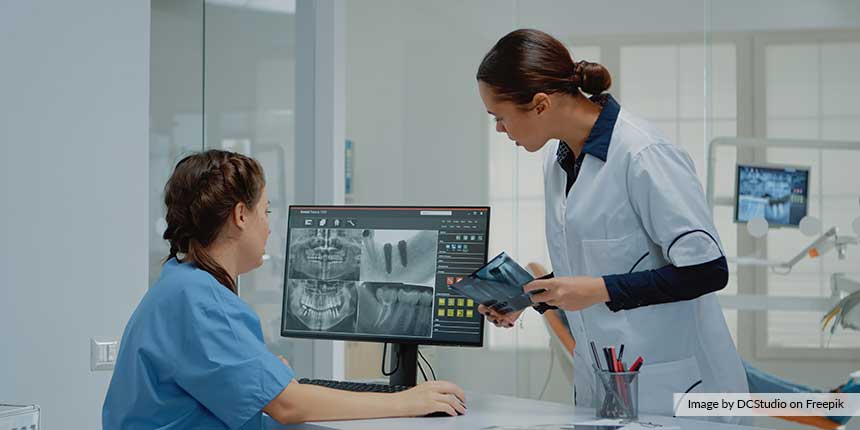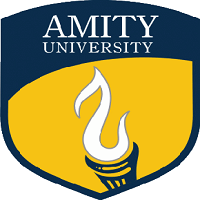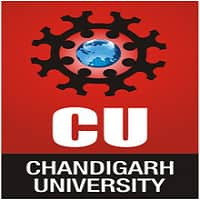UPES B.Sc Admissions 2025
Ranked #46 amongst Universities in India by NIRF | 1900+ Students Placed | 94% Placement | 633+ Recruiters | Last Date to Apply: 28th April
BSc Radiology full form is Bachelor of Science in Radiology, it is an undergraduate degree programme of three years duration. The course prepares the students with the knowledge of medical imaging techniques, patient care, and radiation safety. In India, more than 129 educational institutes offer BSc Radiology course.

To be eligible for the course, students must have successfully cleared their 10+2 from a recognised institute in India. Students must also achieve an aggregate score of 50-60 per cent, 5-10 per cent relaxation for candidates belonging to the reserved categories. The course is offered in the field of radiology and covers subjects such as Human Anatomy, Physiology, Pathology, Patient Care and Ethics, and Quality Control.
The average salary of a Radiologist in India is Rs. 24.6 LPA, depending on the skills and experience of the candidate. After graduating with a BSc in Radiology, students can apply for career options such as X-ray technician, Radiographer, Therapy Radiographer, Radiation Protection Specialist and Medical Image Analyst.
Ranked #46 amongst Universities in India by NIRF | 1900+ Students Placed | 94% Placement | 633+ Recruiters | Last Date to Apply: 28th April
Apply for Integrated M.Sc Biotechnology (5 Years, after 10+2) @ VIT Bhopal University | H-CTC 52 LPA
BSc in Radiology course trains students to use imaging technologies to diagnose and treat medical conditions. In the table below, we have listed some of the key highlights of the BSc Radiology course.
| Particulars | Values |
|---|---|
| Course Name | BSc Radiology |
| BSc Radiology Course Duration | 3 years |
| BSc Radiology Eligibility Criteria | 10+2 in science stream from a recognised board. |
| BSc Radiology Admission Process | Entrance Examination |
| Average BSc Radiology Salary | Rs. 2.7 LPA (for a Radiographer) |
| BSc Radiology Course Fees | Rs. 14,000 to Rs. 3.65 Lakhs |
| BSc Radiology Top Recruiters | AIIMS, Columbia Asia, Apollo Hospital, CMC, Medanta, Fortis Hospital and Manipal Hospital |
| BSc Radiology Job Options | X-Ray Technician, Radiographer, Therapy Radiographer, Radiation Protection Specialist and Medical Image Analyst |
The course duration of BSc Radiology is three-years. It consists of six semesters, students interested in applying for the same should meet the eligibility requirements and follow the admission procedure.
To be eligible for the BSc Radiology course, students must meet the eligibility requirements of the course. They can check the eligibility criteria on the official website of the provider or programme brochure. In the table below, we have mentioned the BSc Radiology eligibility criteria.
| Eligibility Parameters | Educational Qualification |
|---|---|
| Educational Qualification | 10+2 in science stream (Physics, Chemistry and Biology) from a recognised educational board. |
| Minimum aggregate score | They must also achieve an aggregate score of 50-60 per cent, 5-10 per cent relaxation for candidates belonging to the reserved categories. |
| Entrance examinations | CUET UG is a popular entrance examination, students should also meet the cutoff score |
The admission procedure for the B.Sc Radiology course is almost the same for every institute. Students are admitted to the institutes based on entrance exams, and some colleges provide admission-based merit in the qualifying exam. Mentioned below is the admission procedure for B.Sc Radiology.
Admission into B.Sc Radiology is provided based on the entrance exam and the mark scored in the qualifying examination. The candidates will be required to get a valid cut-off score to get admission. The table below shows the top B.Sc Radiology entrance exams.
Exam Name | Conducting Body | Exam Schedule |
|---|---|---|
National Testing Agency |
The cut-off score for B.Sc Radiology is a deciding factor for the student’s admission to a particular university or college. The cut-off for the B.Sc Radiology course varies depending on numerous factors such as the number of applicants, the difficulty level of the entrance examination, and the prestige and stature of the institute.
The BSc Radiology syllabus is very diverse and varies from one institute to another but the core subjects remain the same for every institute. Some of the BSc Radiology subjects are Human Anatomy, Radiography, Clinical Radiography, and Equipment of Advanced Imaging Modalities. Mentioned below is the syllabus of Tamil Nadu Dr. MGR Medical University.
In the first year of BSc Radiology, students study subjects such as Human Anatomy, Physics, and Basics of Computer. In the table below, we have mentioned the 1st year syllabus of BSc Radiology.
| Human Anatomy, Physiology and Pathology relevant to Radiology | English |
| General Physics, Radiation Physics and Physics of Diagnostic Radiology | Basics of Computer |
| Radiography Equipment, Maintenance and Quality Control related to X-ray only | - |
The second year of BSc Radiology covers subjects such as Clinical Radiography, Patient Care and Ethics, and Principles of Emergencies, Contrast and Special Radiography Procedures. In the table below, we have discussed the second-year syllabus of BSc Radiology.
| Clinical Radiography | Patient Care and Ethics |
| X-ray Film/ Image Processing Techniques including Dark Room Techniques | Principles of Emergencies |
| Contrast and Special Radiography Procedures | Project |
In the final year of BSc Radiology, students learn advanced concepts related to Radiography, some universities may also include compulsory internships or project work. Listed below is the 3rd year syllabus of BSc Radiology.
| Equipment of Advanced Imaging Modalities | Modern Imaging Techniques and Recent Trends in Imaging |
| Log Book and Audit | Quality Control, Radiology and Radiation Safety in Radiodiagnosis |
BSc Radiology course fees vary from one college to another, the type of location, and the infrastructure. Generally, private institutes are expensive compared to government institutes. The average fees of a BSc Radiology course range from Rs. 14,000 to Rs. 3.65 Lakhs.
The B.Sc. Radiology courses offer a wide range of opportunities in the field of medicine. The graduates can work as radiographers, radiology technicians, medical image analysts, and radiologists in hospitals, labs, and other institutions in the healthcare sector.
Students after completing the B.Sc Radiology course can also opt for higher studies such as M.Sc, or PhD in relevant disciplines. With the increasing dependency on imaging technology, the demand for skilled professionals in the field is also expected to grow.
After completing a B.Sc. Radiology course, graduates have numerous career options in hospitals, clinics, and healthcare centres. They can also pursue higher studies and choose the specialisation of their choices such as Diagnostic Radiology, Cardiovascular Radiology, Radiation Oncology, and Paediatric Radiology. Here are some of the career options:
X-Ray Technicians: X-ray technicians are healthcare professionals who operate X-ray machines in hospitals, clinics, and other diagnostic centres. They prepare patients for examinations, educate them about the procedures, and ensure their cooperation.
Radiographer: Radiographers are professionals who operate X-ray machines to diagnose the patient’s ailments. They use radiation and imaging technologies to treat the patients.
Therapeutic Radiographer: Therapeutic Radiographers provide radiotherapy treatments to patients using different technical equipment. They also design and deploy a course of treatment with other therapeutic radiographers, medical physicists and patients.
Studying B.Sc. Radiology provides students with many benefits. It provides the students with a strong foundation in medical imaging and an understanding of radiology equipment. The course enhances the critical thinking and problem-solving skills of the students. Students can also opt for M.Sc or PhD courses in relevant disciplines after B.Sc Radiology.
Graduates have a wide range of career options in both public and private sectors. They can work as Radiographers, Radiology Technicians, or Medical Image Analysts. The demand for skilled professionals in this field is high, making it a promising career choice.
BSc Radiology graduates have vast opportunities in both public and private sector organisations. They can work in hospitals, clinics, and nursing homes. BSc Radiology salary package depends on experience, skills, education qualifications, and location of the company. Mentioned in the following table is the average salary of some of the popular career options.
| Job Profiles | Average Salary |
|---|---|
X-Ray Technician | Rs. 2.3 LPA |
Radiographer | Rs. 2.7 LPA |
Therapeutic Radiographer | Rs. 4.2 LPA |
Source: AmbitionBox
Note: The salary might vary depending on various factors.
The below lists some of the top B.Sc Radiology colleges, including private and movement institutions, in various parts of India.
Many private institutes offer B.Sc. Radiology and they may charge higher tuition fees than government colleges. The admission is based on either an entrance examination or direct admission based on previous academic performance. Mentioned in the table below are the top B.Sc Radiology colleges in India along with their fees.
Colleges | Fees |
|---|---|
Rs. 2.25 Lakhs | |
- | |
Rs. 3.47 Lakhs | |
Rs. 2.37 Lakhs | |
Rs. 3.90 Lakhs | |
Rs. 3.60 Lakhs | |
Rs. 1.40 Lakhs | |
Rs. 3 Lakhs |
Many government institutes offer B.Sc Radiology courses and these colleges are known for their academic standard and delivery of courses at an affordable cost as compared to their private counterparts. In the following table, we have mentioned the top government B.Sc Radiology colleges in India.
Colleges | Fees |
|---|---|
Rs. 36,000 | |
| CSJMU Kanpur | - |
- | |
- | |
| Malabar Cancer Centre, Thalassery | - |
B.Sc in Radiology provides students with a rewarding career path in the healthcare sector. The graduates can work at hospitals, diagnostic labs, and clinics or can opt for various job roles such as Radiographer, Radiology Technician, or Ultrasound Technician.
BSc Radiology is a three-year undergraduate degree programme. It focuses on medical imaging techniques required to treat various illnesses and diseases.
Candidates must have completed 10+2 in the science stream with a minimum of 50 per cent or above.
Depending on the institution, the average course fee in India ranges from Rs 10,000 to Rs 4 lakhs.
Radiology is a well-established field. A BSc Radiology course trains students in the area of radiographic imaging of the human body. The course provides ample job opportunities to the graduates.
The average salary for B.Sc Radiology graduates is around Rs 4 Lakhs.
The leading universities offering the B.Sc in Radiology programme are Rajiv Gandhi University of Health Sciences, Tata Memorial Center, Sapthagiri Institute of Medical Sciences and Research Center, University College of Medical Sciences and GTB Hospital.
Some of the top entrance exams are AIIMS, NIMHANS, VMU CEE, and others.
After pursuing a B.Sc Radiology, students can opt for higher studies such as M.Sc and PhD.
The top recruiters who employ candidates after completing the B.Sc Radiology course are AIIMS, Columbia Asia, Apollo Hospital, CMC, Medanta, Fortis hospital, and many more.
Hi aspirant,
Yes, the B.Sc. B.Ed. integrated course is offered at RSD College . According to official sources, this program spans four years and has a total of 50 available seats for students.
For further information regarding RSD College, including details about the fee structure and placement opportunities, visit here.
I hope this information proves helpful to you!
Hi aspirant,
Yes, the B.Sc. B.Ed. integrated course is offered at RSD College . According to official sources, this program spans four years and has a total of 50 available seats for students.
For further information regarding RSD College, including details about the fee structure and placement opportunities, visit here .
I hope this information proves helpful to you!
Hi aspirant,
Here are various ways you can gain admission without taking the CUET :
1 . Private Colleges : Many renowned private colleges in India offer B.Sc. Zoology is based on their criteria.
2 . State Universities : Many state universities and their affiliated colleges do not require the CUET for admission.
3. Merit-Based Admissions : You can also apply to colleges based on your marks from the 12th standard.
I have compiled a list of top colleges in India for B.Sc. Zoology, filtered based on their fees and placement records. You can check here .
Yes, Khalsa College in Amritsar offers a B.Sc. (Hons.) in Zoology. It is a three-year undergraduate program affiliated with Guru Nanak Dev University.
Eligibility Criteria :
Candidates must have completed 10+2 in the Medical or Non-Medical stream.
A minimum of 40% marks in aggregate is required.
Admission Process :
Admissions are based on merit, considering the marks obtained in the qualifying examination.
Course Structure :
The program covers subjects like Cell Biology, Biodiversity, Ecology, Genetics, and Physiology.
For admission to a government B.Sc. Biotechnology program after Class 12 (PCB), you may need to appear for:
1. CUET (Common University Entrance Test) – Required for admission to central universities like Delhi University, BHU, JNU, etc.
2. State Entrance Exams – Some state universities conduct their own entrance exams (e.g., WBJEE for West Bengal).
3. NEET (Not Required for B.Sc. Biotechnology) – NEET is only required for medical courses like MBBS, BDS, and some allied health sciences.

Ranked amongst top 3% universities globally (QS Rankings)

B.Sc (Hons) Admissions 2025 Now Open | Ranked Among the Top 100 Universities in the World by QS World University Rankings 2025 | Last Date: 28th Apr'25

Ranked #1 Among all Private Indian Universities in QS Asia Rankings 2025 | Scholarships worth 210 CR
#10 in India by NIRF Ranking | Institution of Eminence by Govt. of India | Scholarships Available
NBA Accredited | AICTE Approved | Use Code: Careers360 & Avail 50% Off on Application Forms | Last Date: 19th Apr’25
100+ Industry collaborations | 10+ Years of legacy